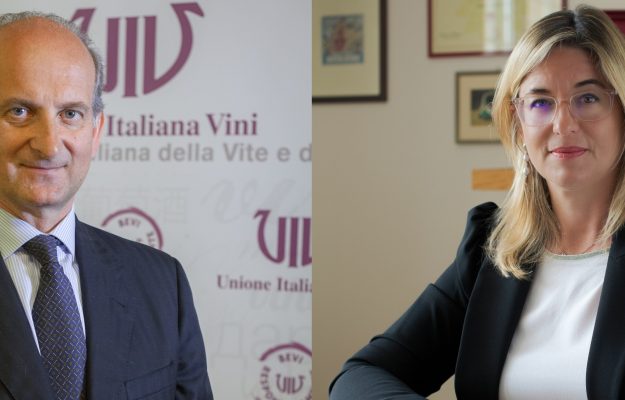The largest representatives of Italian wine, Unione Italiana Vini (Uiv) and Federvini, in anticipation of a 2022 closure that will be positive for the sector, but with a future where certainties are negative and uncertainty reigns supreme, launch the alarm: “the world of wine is between a rock and a hard place. The increases from suppliers are unacceptable, as is the rigidity of the large-scale distribution in accepting price list adjustments”. Thus, in a joint press release, the two organizations explain: “the new year will bring another increase in glass prices: bottle suppliers have requested an additional 20% increase, on top of the surplus (48%) already achieved in 2022 compared to the previous year. The Italian wine industry appears to be in good health, but rising raw material costs, beginning with energy and glass, risk darkening in 2023, which is already in danger of recession. Downstream of the supply chain, large-scale distribution is resisting any price list adjustments and, these days is asking for a price moratorium for at least 4-6 months. An unsustainable request, given that wineries have already absorbed the majority of the significant increases in energy and raw materials in 2022: continuing in this manner today means losing margins and profitability”. As a result, explain Federvini and Unione Italiana Vini (Uiv), the entire sector is suffering, and refusing to implement the already planned price increases today risks jeopardizing the stability of the entire wine supply chain upstream of distribution. “It is necessary to initiate an open and honest dialogue throughout the entire supply chain because everyone must share and collaborate to address the difficult situation”.
“In this way, we are between a rock and a hard place - affirms Micaela Pallini, president of Federvini - they are asking us to accept increases of up to 20%-25%, such as that of glass, which seems unjustified especially today given that energy prices, at the moment, seem under control, but they would like our final prices to remain unchanged. It is clear, that this combination absolutely cannot work and puts thousands of small and medium-sized businesses at risk, after two years of low profitability and growing costs”. “The situation that is increasingly taking shape - says the president of the Unione Italiana Vini, Lamberto Frescobaldi - threatens a sector like ours. We are balancing an increase in producer prices, lower consumer purchasing power, and historical partners - such as large-scale distribution and the glass industry - that exhibit unconstructive rigidities. Instead, it would be important to be able to focus altogether on possible solutions”.
Because although in domestic consumption, they held, with the recovery in out-of-home which has compensated for the drop in large-scale distribution (which is essentially a return to the values of pre-pandemic 2019), and export, in value, is heading to a new record, at 8 billion euros (with an increase in value linked however more to inflation rather than to the increase in sales, ed), the world of wine, explain Uiv and Federvini, closes 2022 with more shadows than lights and with 2023 that could, in its negative scenario linked to recession and war, get much worse. According to the processing of Istat data from the 2 Italian organizations in the sector, during 2022 the world of wine recorded very limited increases in price lists in large-scale distribution (no more than 6.6% on average), therefore largely below the current levels of inflation and much lower than in almost all the Italian agri-food sectors. A deficit, to which must be added the simultaneous volume decrease in the demand for wine from large-scale retailers in the first 11 months of the year (-6%). “In a long and complex supply chain like that of wine, each part has a role but also an essential responsibility for the success of the sector. Single leaps forward, ultimatum conditions, unthinkable requests: for Federvini and the Unione Italiana Vini (Uiv) these are all elements that jeopardize the Italian production chain and consumer trust”.
Copyright © 2000/2026
Contatti: info@winenews.it
Seguici anche su Twitter: @WineNewsIt
Seguici anche su Facebook: @winenewsit
Questo articolo è tratto dall'archivio di WineNews - Tutti i diritti riservati - Copyright © 2000/2026







































































































































































































